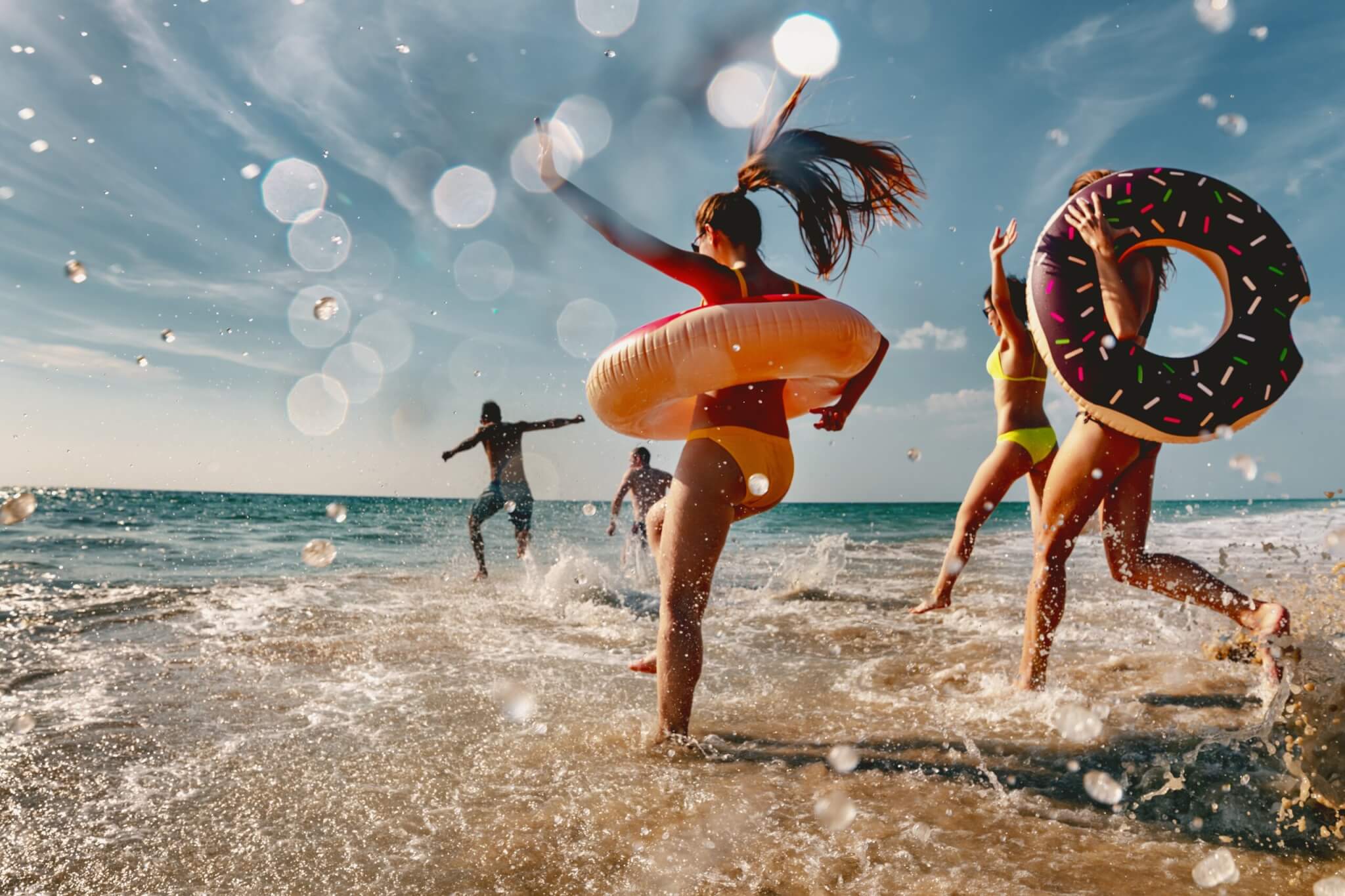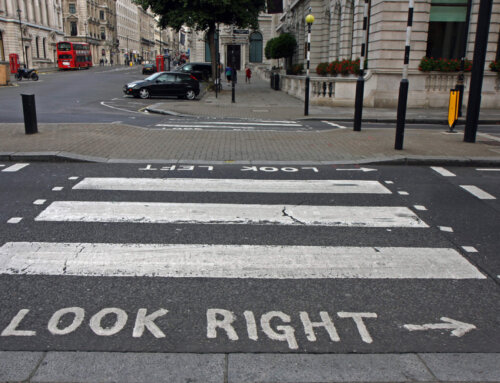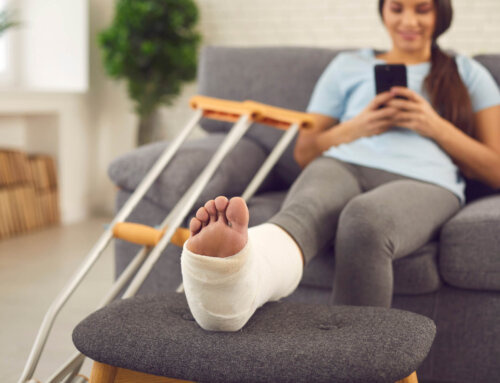The UK has been basking in record temperatures and prolonged spells of above average temperatures this summer, as the Met Office confirms.
While this is excellent news for those of us planning a staycation or even just taking a few days off to relax at home, it’s essential to stay safe when out and about, soaking up the rays.
As the temperatures rise, so too does the risk of being involved in an accident in some circumstances. These include water-related incidents, sporting accidents, and even road traffic accidents. Understanding the leading causes of these accident types and how to avoid them will enable you to make the most of the summer weather without being subjected to any mishaps.
If you suffer an injury in an accident whilst on your summer holidays due to someone else’s negligence, Mooneerams personal injury solicitors can help. We specialise in assisting those involved in accidents that weren’t their fault to claim compensation.
We usually handle holiday accident claims on a no win no fee basis. As a result, in most cases, you can seek legal advice and support without worrying about legal costs.
What are the top causes of personal injury claims over the summer months?
The top causes of personal injury claims over the summer months include:
1. Water-related incidents
Summer is a high-risk period for water-related accidents, as people seek ways to cool off or do water sports. Statistics from the Water Incident Database reveal that of the 226 water-related deaths in 2022, 105 occurred during June, July, and August.
Open water sites are far more hazardous than swimming pools, and inland water spots are statistically the most dangerous, with 75% of water related fatalities occurring in locations like rivers, lakes, and quarries.
By contrast, just 15% occur at the coast.
The safest place to go for a swim is a swimming pool; pool-related incidents accounted for only 1% of water-related deaths in 2022.
Being around open water is inherently dangerous, even for the most experienced of swimmers. To enjoy a summer swim safely, the Royal Lifesaving Society advises people:
- Be honest about your swimming ability and whether you’re able to deal with cold, unpredictable open water where strong currents and hidden obstacles can lurk beneath the surface, and cause death by cold water shock.
- Research the area before you go. You should check the weather conditions and look for any information regarding the safety of swimming at the spot you’ve picked out.
- Check that the area is safe. This procedure involves confirming that the water is neither too deep nor too shallow and that there is no risk of currents, tides, or obstacles.
- Stick to lifeguarded areas.
- Enter the water slowly. You should never jump from a height.
- Resist the urge to fight against a rip current. Instead, swim with the current and call out for help.
- Never use inflatables in open water. They can get caught in the wind and increase the risk of an accident.
- Do not go too far out and stay within a standing depth.
- Always go with other people and stay where they can see you.
If your accident took place in a lifeguarded swimming pool and resulted from a lifeguard’s failure to supervise properly, you may have cause to make a personal injury claim against those responsible for operating the pool.
A tragic example of this was a case reported by the BBC, when the court found Northampton Borough Council had breached its duty of care to a six-year-old child who suffered catastrophic brain injuries after the youngster nearly drowned in a lifeguarded swimming pool at a leisure centre managed by it.
The boy slipped under the water without being noticed. The Judge at the High Court hearing to decide if the Council was liable to pay the boy damages said the “lifeguards failed in their duty of care” and “failed to identify him as a child at risk”. The Judge found the Council was liable for the young boy’s horrendous injuries, and at a later hearing, the boy received £13 million in compensation.
If you suffer injury during an organised water-based activity, you may be eligible for compensation if you can show that someone else’s negligence caused the accident.
When four people tragically died on a paddleboarding excursion, the owner of the paddleboarding company, who also led the tour, was found guilty of gross negligence manslaughter at a court hearing.
The instructor had only basic qualifications, failed to conduct adequate risk assessments or provide proper safety equipment, and ignored advice that she follow a safer route.
It can be difficult to determine who is at fault for an accident that occurred while swimming in open water. While the Occupiers’ Liability Act imposes a duty on landowners to take reasonable steps to ensure their premises are safe for guests, that duty is more limited when it comes to uninvited visitors, like those who swim in water sites without permission.
In addition, where the site itself is hazardous, such as a fast-flowing river, arguing that the landowner should have taken steps to protect trespassers who choose to use it would be incredibly challenging.
2. Physical activity-related injuries
It will come as no surprise that many more of us are physically active during the summer months than at other times of the year. The longer daylight hours, warmer temperatures, and increased leisure time all combine make us more willing to go jogging, cycling, and do other outdoor sports over the summer.
There are various measures you can take to reduce your risk of injury when taking part in physical exercise this summer, which include:
- Ensure you warm up and cool down properly.
- Avoiding over-exertion – be honest about your abilities and don’t push yourself too hard. If you’re a novice, don’t pit yourself against an experienced sportsperson.
- Familiarise yourself with the rules of the sport you’re playing and follow them.
- Wearing appropriate clothing and footwear.
- Using personal protective equipment where necessary.
- Lifting and carrying any equipment safely.
Of course, all forms of exercise carry a small, risk of injury. Most accidents are nobody’s fault.
However, if someone else’s negligence caused your accident, you may be entitled to claim compensation.
Examples of situations in which you may be able to make a personal injury claim include:
- You were given faulty equipment to use.
- You were not given the appropriate protective equipment.
- You were not adequately trained or supervised.
- You suffered injury as a result of a reckless tackle.
- You were injured by an obstacle on the pitch that should have been noticed and removed on a pre-match inspection.
- The weather was so hot that the club should have taken measures to make it safe for you to play in or even postponed the event.
3. Road traffic accidents
You are statistically more likely to be involved in a road traffic accident during the summer months than at any other time of the year. When temperatures rise, drivers are more likely to get behind the wheel while tired and drive at higher speeds, resulting in more fatal collisions in summer compared to winter.
The seasonal increase in accidents is due to several reasons, including more traffic on the roads, drivers taking longer trips to unfamiliar destinations, and so-called ‘holiday head‘, which makes some people feel detached from everyday life to the point of feeling invincible.
In addition, summer driving presents a unique set of challenges, including sun glare and high temperatures, which can also increase the likelihood of accidents.
To reduce your risk of being involved in a road traffic accident this summer, you should:
- Wear sunglasses with 100% UV protection while driving.
- Ensure you keep the correct footwear in your car. While flip-flops and sandals can be invaluable in keeping our feet cool, they’re dangerous to wear behind the wheel. You should make sure you have a pair of suitable, closed-toe shoes in your car at all times, so that you can stay in control of the pedals.
- Plan your route in advance. If you’re heading off on a staycation or to the airport, make sure you know where you’re going before you leave. Unfamiliar roads can cause you to drive erratically or brake suddenly and cause an accident.
- Stay hydrated. Long journeys, bad traffic, and hot temperatures can cause dehydration, so it’s essential to make sure you have enough to drink.
- Stay alert. With more people out and about in summer, particularly at holiday hot spots, you should drive slowly and exercise caution to avoid hitting vulnerable road users like pedestrians or cyclists.
If you’ve been involved in a road traffic accident, that was caused by another road user, you may be entitled to compensation. Road Traffic Accident claims don’t just involve motor vehicle drivers and motorcycle accident claims but also include accidents involving passengers, cyclists, pedestrians, and horse riders.
You can claim for any type of physical injury that you suffer, from whiplash to brain injuries, as well as psychological injury, such as post-traumatic stress disorder.
Final Thoughts
With summer underway, many of us are likely to be in a better than average mood, and there’s scientific evidence to explain why – sunlight literally changes our brains and encourages the production of mood-boosting chemicals.
However, there’s also evidence to show that as the temperature soars, so does our appetite for risk.
Learning to understand the unique dangers presented by summer and taking measures to mitigate them will ensure you can enjoy the season without any unpleasant incidents dampening your spirits.
Posted in Personal Injury Claims











